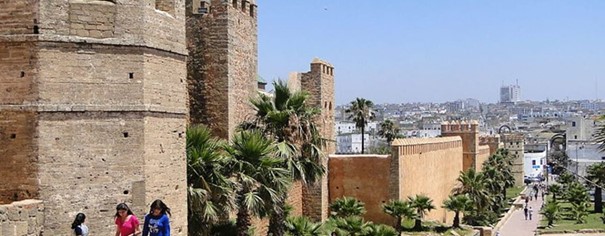
A] Prelude
As we westerns are used to our own system, we believe it can be enlightening to see how it is in a totally different pension system situation like in Morocco.
For more information on pension systems, risk and coverage, feel free to visit our dedicated webpages:
https://expatpensionholland.nl/global-pillars-systems
https://expatpensionholland.nl/global-investments-risks-0
https://expatpensionholland.nl/global-social-security-coverage
B] Reform Needed
The Government Action Observatory, affiliated with Al-Hayat Centre for Civil Society Development in Morocco, has warned that one of the most prominent challenges facing the government of Prime Minister Aziz Akhannouch in its fourth year is that of reforming the pension system, which is at risk of bankruptcy by 2028. Corruption is also one of the pressing issues, as the cost of this affliction in Morocco exceeds 50 billion dirhams annually, which hinders economic growth and affects efforts to improve the citizens’ standard of living.
The observatory said in a report entitled “Ambitious goals and worrying challenges” that graft has reached dangerous levels, which constitutes a real drain on the state’s resources, in addition to Morocco’s decline in the Corruption Perception Index from 73rd to 97th place globally within five years, which reflects the increasing spread of corruption in various sectors and the weakness of efforts aimed at combating it.
C] Vision
The observatory reported that Akhannouch’s government has not yet been able to present a clear vision to confront corruption and keep a tight rein on its repercussions. According to the National Integrity Authority, governmental and administrative institutions are not engaging efficiently in activating the anti-corruption strategy, failing to carry out recommendations, thus boosting the spread of corruption and weakening the effectiveness of policies aimed at improving governance.
D] Corruption
In a move to defend the state’s approach, government spokesman Mustapha Baitas said that combating corruption is a major concern for the government, which has worked on the issue since its inauguration. He recalled that the volume of follow-ups has increased, which confirms, according to him, a keenness to follow up on any harm to public funds or any form of corruption.
Despite the government’s attempts to combat graft, the Government Action Observatory pointed to the lack of clear commitment from governmental and administrative institutions to implement the measures agreed upon within the framework of the anti-corruption strategy. It warned that this failure to confront the phenomenon will continue to weaken trust between citizens and the state, which may hinder the government’s efforts to attract investments and achieve economic development.
E] Sustainable solutions
The observatory noted that pension reform in Morocco constitutes a complex issue that requires urgent and sustainable solutions, as the civil pension system faces the risk of bankruptcy by 2028, with this system expected to exhaust all its reserves. Such a development would force the state to pump approximately 14 billion dirhams annually to maintain the continuity of pension payments for the benefit of retirees.
In 2016, the government began a standard reform of the pension systems, based on three basic principles: increasing the value of contributions, increasing the retirement age to 65 years and reducing the value of pensions. According to the observatory, this approach means that workers and public employees will bear almost the entire burden of the costs of this reform.
“The Moroccan Retirement Fund is based on distribution, and any decrease in the membership base exposes it to bankruptcy, and any increase would prolong its life,” Idriss al-Fina, an economic expert, told The Arab Weekly. He added that “the government’s approach is successful, but it is not enough,” noting that “the question of governance is the real issue that must be examined, as the fund requires good management.”
F] Financial balance
The financial balances in the retirement systems have been hit by a set of irregularities, especially the Moroccan Retirement Fund, which suffers the most, given the method of calculating the pension and the standards it adopts. The observatory noted that what increases the complexity is the lack of agreement between the government and social partners. This reform remained a thorny and sensitive program that requires the government to deal with caution and make concessions, which ensure the sustainability of the system without burdening workers with the cost of reform.
G] Urgency
Calls for pension reform in Morocco have grown louder, especially after the statements on reform made by Minister of Economy and Finance Nadia Fettah in the House of Representatives at the beginning of 2024, amid difficult circumstances and congestion in a number of government sectors, which doubles the challenges facing the government.
To confront the risk of the pension system running out of money in the coming years, the government is proposing reforming funds threatened with bankruptcy, to review many procedures in the current system and not to re-evaluate pensions over the next ten years.
The financial situation of the basic pension and pension schemes remains difficult, according to a recent report by the Central Bank of Morocco. It confirmed that implementing the decisions related to increasing salaries taken during the last social dialogue session (April 29, 2024) would slightly postpone the depletion of the reserves of the Moroccan Retirement Fund and the Collective System for Granting Retirement Pensions, but without guaranteeing their continuity in the long-term.
Economic analysts believe that drought, high inflation and social demands to improve wages are factors that will increase the pressure for pension reform, stressing that the parties to the social dialogue, the government, unions and business owners, are supposed to reach a consensual and acceptable formula that allows for reform.
H] Central Bank
The Central Bank report of the recommended a systematic and coordinated reform, by introducing a two-level public and private system, the strategic guidelines for which were set in the Social Dialogue Agreement. The report also stressed that this reform should allow for the introduction of a tariff system for the pension system capable of absorbing a large part of their previous uncovered obligations.
